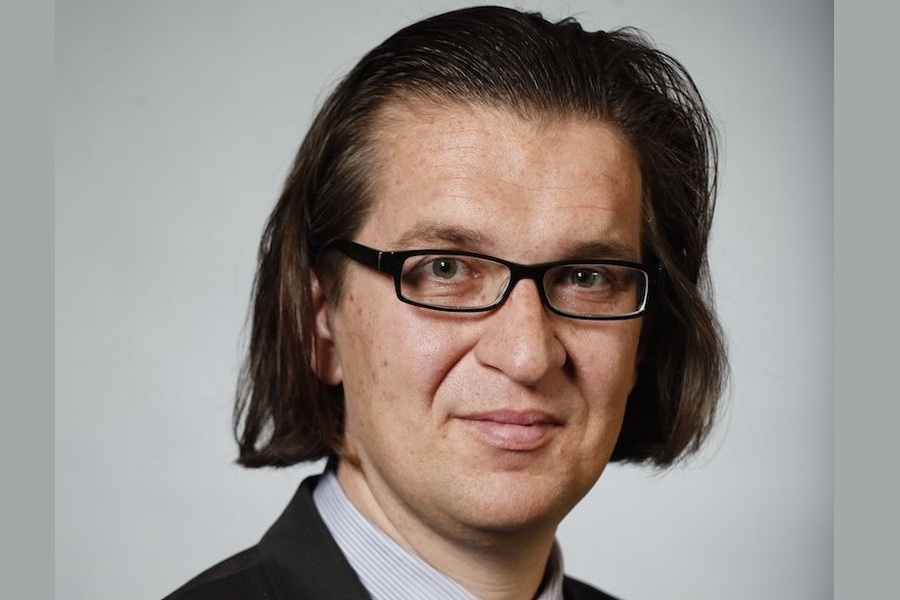
Expert View: Professionalisation is essential for the future of fundraising
March 21, 2018
Your Voice: Overcoming the barriers to cross-border giving
May 16, 2018Fundraising is a relationship business and this applies to fundraisers just as it does to donors, says Andrej Naricyn, fundraising consultant. Here he shares his tips on how to motivate the motivators; how to inspire your fundraising team.
What kind of fundraisers do we want to represent our cause? I’m sure most of us can draw up a list of qualities and characteristics that revolve around inspiring our donors, many of which may include energy, enthusiasm, resilience or even tenacity. We are often, and rightfully so, concerned with the quality of the relationships we have with our patrons.
We want our donors to become our ambassadors, our campaigners, our legators – but who in our organisation motivates the motivators, who inspires the inspirers? Below are some of the top tips on how to motivate and inspire your key people.
Offer opportunities for career development
Fundraiser recruitment is arduous, let alone expensive. As an industry, we are fatigued by a well-documented shortage of talent exacerbated by high staff turnover. NPOs of all statures mobilise countless resource on donor engagement and loyalty programmes, yet somehow fail to crack their own staff loyalty.
Amongst several factors, lack of professional development opportunities is often quoted as one of the key reasons for fundraisers leaving their organisations. This includes ongoing training, inter-departmental shadowing, vocational up-skilling and defined paths for career progression. Surprisingly little is talked about fundraiser induction programmes, although these tend to set a working tone that is much harder to change down the line. As the old saying goes, “You don’t get a second chance to make a first impression”.
Make sure you recognise success
Gratitude and recognition may come for free but they are often heavily underused. Arguably none of us have chosen our profession to become rich and famous; however equally few of us have opted for long hours, strained budgets and chronic understaffing either. No “yes” in fundraising comes without a multitude of “no’s” and any team manager will do well by proactively acknowledging individual or team effort.
Having worked most of my professional career with performance-driven teams in direct dialogue fundraising, I’m often asked to give examples of staff recognition. Whilst bonuses, certificates or organisation-wide memos are all valid options, here I will often stress the importance of public praise — show gratitude in public and provide feedback in private.
Reignite fundraisers’ connection with the cause
It’s so easy to get lost in the KPIs and the BAUs of fundraising and with that lose our emotional affiliation with the frontline work of our chosen charities. Enthusiasm and passion for the cause are the burning fuel of our industry and we must occasionally re-ignite them by reminding ourselves (and our staff) why we do the things we do. Regular field days, volunteering opportunities, inspirational speakers are just some of the ways to re-engage with the charity.
Trust and empower fundraisers to become self-reliant
How many successful people do you know personally who have been purely administering someone else’s instructions rather than using their own initiative? Or how many successful teams do you know who are driven by fear of failure instilled by their superiors? Fear of being reprimanded or doing something wrong is as helpful in a workplace as a construction helmet on an armadillo. Empowered fundraisers are typically their own biggest critics and do not require to be micro-managed. As managers, we need to lead more and manage less.
Personalise the workplace environment to inspire the best from your team
Like a board of Cluedo, fundraising is sometimes riddled with baffling mysteries. For example, as professionals we know that nothing is more effective in evoking a response from our donors as an emotional and personalised communication, ideally face-to-face. Somehow, however, as team managers we often think that email-driven communication is the way to motivate and manage our key people. We spend no less than half of our waking time doing work or thinking about it. As social beings we are in need of communication that is personal and not exclusive to social events and annual fundraising gatherings.
Ask yourself what work environment would motivate you? For me personally this list will include having an open door policy with my managers, being trusted by peers and superiors, being encouraged by colleagues etc. The bottom line is that motivating staff is not rocket science. Fundraising is a relationship business and this applies to both donors and fundraisers.
About Andrej Naricyn
Andrej Naricyn MInstF (Dip) is a fundraising consultant, specialising in supporter acquisition and regular giving. With 12 years experience in fundraising, Andrej has worked with NPOs and agencies in Britain, Norway, Kazakhstan and Lithuania. He holds an MSc in Innovation and Entrepreneurship from the University of Warwick and a Diploma in Fundraising from the IoF. Follow him on twitter @AndrejNaricyn




